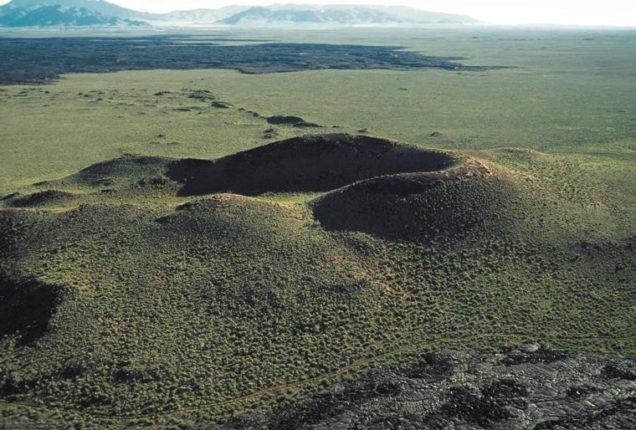A push to get Craters of the Moon National Monument and Preserve designated as a national park is on hold, and the idea’s backers aren’t optimistic that it will go anywhere anytime soon given the political situation.
“We kind of had to take a step back for a while,” said Rose Bernal, a Butte County Commissioner who has been helping lead the push for the designation for the past few years.
One reason, she said, is because this is an election year, which is always a more difficult time to get anything passed. Another, she said, is the political climate in Washington, D.C.
The Trump administration has been looking to reduce the size and scope of national monuments. While the U.S. Department of the Interior didn’t recommend any changes to Craters after a review late last year, Bernal said now might not be the right time to try to create a new national park.
The third reason, she said, is that the Idaho Farm Bureau opposes the idea. With them against it, Bernal said she doesn’t expect a resolution backing a national park to pass the state Legislature.
“No matter what kind of answers we bring to their questions, it’s more of an ideological argument, ‘We hate the government,’” Bernal said. “How do we argue with that?”
Supporters of the change want the federal government to redesignate the national monument portion of Craters, which encompasses the iconic lava fields and rock formations, as a national park, saying it will boost tourism.
A May report from Headwaters Economics found that “in the Intermountain West, from 2000 to 2016, recreation visits to national parks increased while visits to national monuments decreased. Importantly, national parks saw a much faster increase in overnight visits, which have great economic impact in the surrounding region.”
Supporters have said they don’t want to see any changes in how the land is managed now and that the park designation wouldn’t change it.
However, the Idaho Farm Bureau is still against it, said spokesman Sean Ellis. He cited concerns that a national park designation could lead to the federal government putting additional restrictions on livestock grazing in the national preserve section or on alfalfa growers that use U.S. Highway 20, which passes through the monument portion, to move their product from the Upper Valley to the dairies in the Magic Valley.
“We’re not trying to restrict the economy in that area by any means at all,” he said. “We just have serious concerns about how it could impact agriculture if the monument does receive park status.”
Local county commissions have passed resolutions backing the idea, and Butte County voters gave 57 percent support to the idea in a nonbinding referendum in 2016. Bernal argued that this should count for more than an expression of a lack of support from the state, saying county commissioners are closer to the people and lobbyists aren’t a factor at the local level.
“To me that’s a purer form of support,” she said.
However, any change would require an act of Congress, and Idaho’s federal lawmakers have said they would want to see official support from the state government, which hasn’t been forthcoming.
“What we kind of all agreed to was we were going to follow the lead of the state Legislature,” Lindsay Nothern, spokesman for U.S. Sen. Mike Crapo, said earlier this week.
A resolution backing the concept passed the Senate in 2017 but never got a vote in the House. The idea didn’t come up again during this year’s session, and one of its backers, Sen. Jeff Siddoway, R-Terreton, is retiring and won’t be there in 2019.
